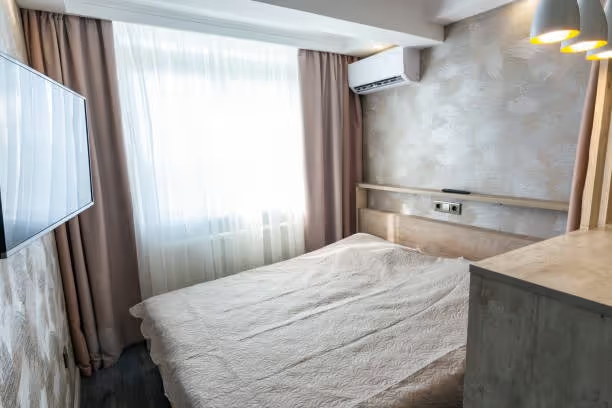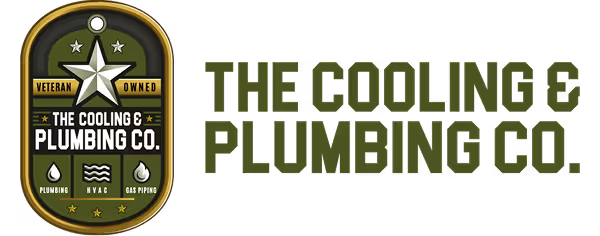Commercial Air Conditioning in Queen Creek, AZ
Keeping commercial properties comfortable and operational in Queen Creek, AZ requires HVAC systems designed and maintained for long, hot summers, monsoon dust, and the occasional temperature swing. Whether you manage retail, restaurants, office parks, warehouses, medical suites, or hospitality properties, reliable commercial air conditioning is essential for occupant comfort, regulatory compliance, product protection, and uninterrupted business operations.

Common commercial AC issues in Queen Creek, AZ
Businesses in Queen Creek face recurring, location-specific challenges that accelerate wear or reduce system performance:
- Rooftop unit failures — exposed units take the brunt of heat, sun, and windblown dust and often show coil corrosion, condensate drain blockages, and motor fatigue.
- Reduced capacity from soiled coils and filters — desert dust and seasonal pollen clog coils and filters, reducing heat transfer and increasing runtime.
- Refrigerant leaks and compressor stress — running systems harder in high heat raises the risk of refrigerant loss and compressor failure.
- Controls and sensor drift — thermostats, economizers, and building controls can drift out of calibration, causing short cycling or poor zoning.
- Duct leakage and insulation breakdown — poorly sealed or insulated ducts lose cooled air, increasing costs and decreasing comfort.
- Emergency breakdowns during peak hours — midday failures create immediate business risk, especially for food service, retail, or data/medical environments.
Commercial HVAC services and solutions for Queen Creek properties
A full-service commercial air conditioning approach includes preventive care, fast repairs, system upgrades, and formal agreements tailored to a facility’s needs. Typical service categories include:
- Rooftop unit service and repair
- Inspect fan motors, belts, bearings, and condensate pans.
- Clean and test condenser and evaporator coils, verify refrigerant charge, and check electrical connections.
- Repair or replace worn components and test startup/shutdown sequences to prevent repeat failures.
- Large-system diagnostics
- Comprehensive performance testing using gauges, thermal imaging, and airflow measurement.
- Load and capacity analysis to determine if under-sizing, control errors, or duct issues are driving inefficiency.
- Balanced troubleshooting of electrical, refrigeration, and control subsystems to find root causes, not just symptoms.
- Preventative maintenance contracts
- Scheduled seasonal inspections (recommended at least biannually for Queen Creek) including filter changes, coil cleaning, calibration, belt and motor inspection, and refrigerant checks.
- Detailed service logs, asset tracking, and prioritized scheduling to lower downtime risk.
- Predictive recommendations for part replacement before failure.
- Emergency response and rapid repair
- Prioritized dispatch for business-critical failures, rapid diagnostics, and temporary cooling strategies when needed.
- Onsite repairs focused on restoring operation quickly while documenting long-term fixes.
- Energy-efficiency upgrades
- Replace old rooftop units with high-efficiency models, install variable frequency drives (VFDs) on motors, upgrade controls and thermostats, and integrate building automation systems (BAS).
- Implement zoning, economizers where feasible, and heat-recovery strategies to reduce utility costs.
- Evaluate ROI and lifecycle savings—upgrades often offset cost through reduced runtime and lower maintenance.
- Compliance and safety considerations
- Proper refrigerant handling and documentation in line with EPA regulations and industry best practices.
- Ventilation and indoor air quality (IAQ) strategies that align with ASHRAE guidance and local health code expectations for commercial spaces.
- Rooftop safety protocols, fall protection, secure access, and compliance checks for permits and local building codes.
- Tailored service agreements
- Agreements scaled to facility complexity: single-unit retail stores to multi-zone office campuses and industrial plants.
- Options for fixed-interval maintenance, priority emergency response, inventory stocking, and performance reporting.
- Transparent scoring of system health and scheduled capital planning recommendations.
What to expect from a professional diagnostic and repair process
A methodical approach saves time and prevents recurring failures:
- Initial assessment and history review — technicians gather runtime logs, past repairs, and recent complaints to focus diagnostics.
- Visual and hands-on inspection — verify electrical integrity, mechanical wear, refrigerant levels, airflow, and controls.
- Instrumented testing — use gauges, meters, thermal cameras, and airflow capture to quantify performance.
- Root-cause determination — identify underlying causes (e.g., dirty coils causing compressor overheating) rather than addressing only symptoms.
- Repair or upgrade plan — clearly itemize options, expected life-extension benefits, and energy implications.
- Post-repair validation — retest system under load to ensure performance meets design or improved targets.
Benefits of proactive commercial AC management in Queen Creek
Investing in professional commercial AC services yields measurable business benefits:
- Reduced downtime and fewer emergency outages, protecting revenue and customer experience.
- Lower energy costs through tuned systems and targeted efficiency upgrades that matter in Arizona’s high-cooling climate.
- Extended equipment life and optimized capital replacement timing based on documented system health.
- Improved indoor air quality and occupant comfort, crucial for retail, healthcare, and office productivity.
- Regulatory and safety compliance, limiting liability and ensuring safe rooftop and mechanical room operations.
Practical maintenance tips for Queen Creek facility managers
- Schedule major tune-ups before peak summer demand to avoid mid-season failures.
- Use higher-efficiency filters and increase filter-change frequency during monsoon season to reduce coil fouling.
- Monitor energy use monthly to detect abnormal spikes that signal system decline.
- Keep rooftop access clear and secure to allow timely inspections and safe servicing.
- Consider remote monitoring for critical systems to get alerts before small issues escalate.
Well-executed commercial air conditioning programs in Queen Creek combine routine maintenance, timely repairs, and targeted upgrades tailored to local environmental stressors. For businesses that rely on consistent indoor climate control, a strategic, documented approach to commercial HVAC is the most cost-effective way to protect operations, improve comfort, and manage long-term energy and capital expenses.






